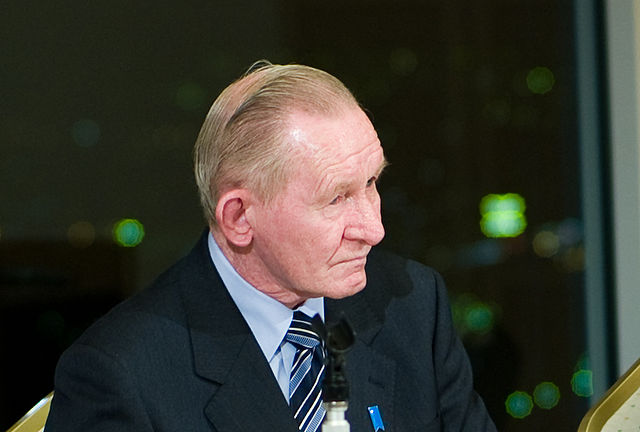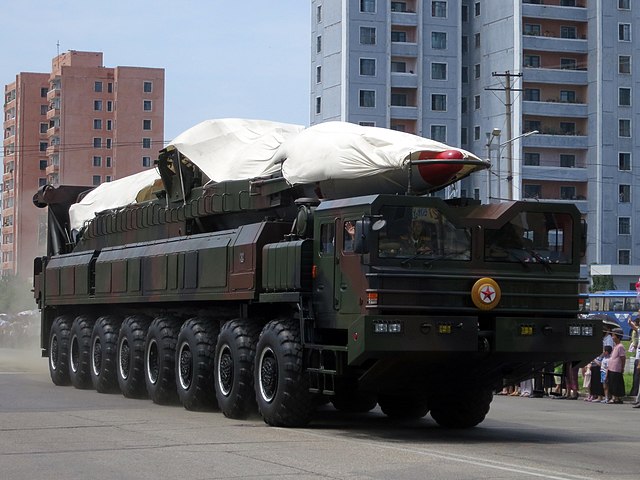North Korea–United States relations
Relations between North Korea and the United States have been historically hostile. The two countries have no formal diplomatic relations. Instead, they have adopted an indirect diplomatic arrangement using neutral intermediaries. The Swedish Embassy in Pyongyang is the US protecting power and provides limited consular services to U.S. citizens. North Korea, officially the Democratic People's Republic of Korea (DPRK), does not have an embassy in Washington, DC, but is represented in the United States through its mission to the United Nations in New York City which serves as North Korea's de facto embassy.
American M26 Pershing tanks in downtown Seoul and North Korean prisoners-of-war during the Korean War, September 1950
Release of USS Pueblo crew on December 23, 1968
Axe murder incident on August 18, 1976
Sergeant Charles Jenkins in 2007
North Korea and weapons of mass destruction
North Korea has a military nuclear weapons program and, as of 2024, is estimated to have an arsenal of approximately 50 nuclear weapons and sufficient production of fissile material for six to seven nuclear weapons per year. North Korea has also stockpiled a significant quantity of chemical and biological weapons. In 2003, North Korea withdrew from the Treaty on the Non-Proliferation of Nuclear Weapons (NPT). Since 2006, the country has conducted six nuclear tests at increasing levels of expertise, prompting the imposition of sanctions.
Military parade in Pyongyang, 2015 featuring soldiers with CBRN equipment
North Korea's ballistic missile
Kim Jong Un, with what North Korea claims is a miniaturized silver spherical nuclear bomb, at a missile factory in early 2016.
5 MWe experimental reactor at Yongbyon Nuclear Scientific Research Center








